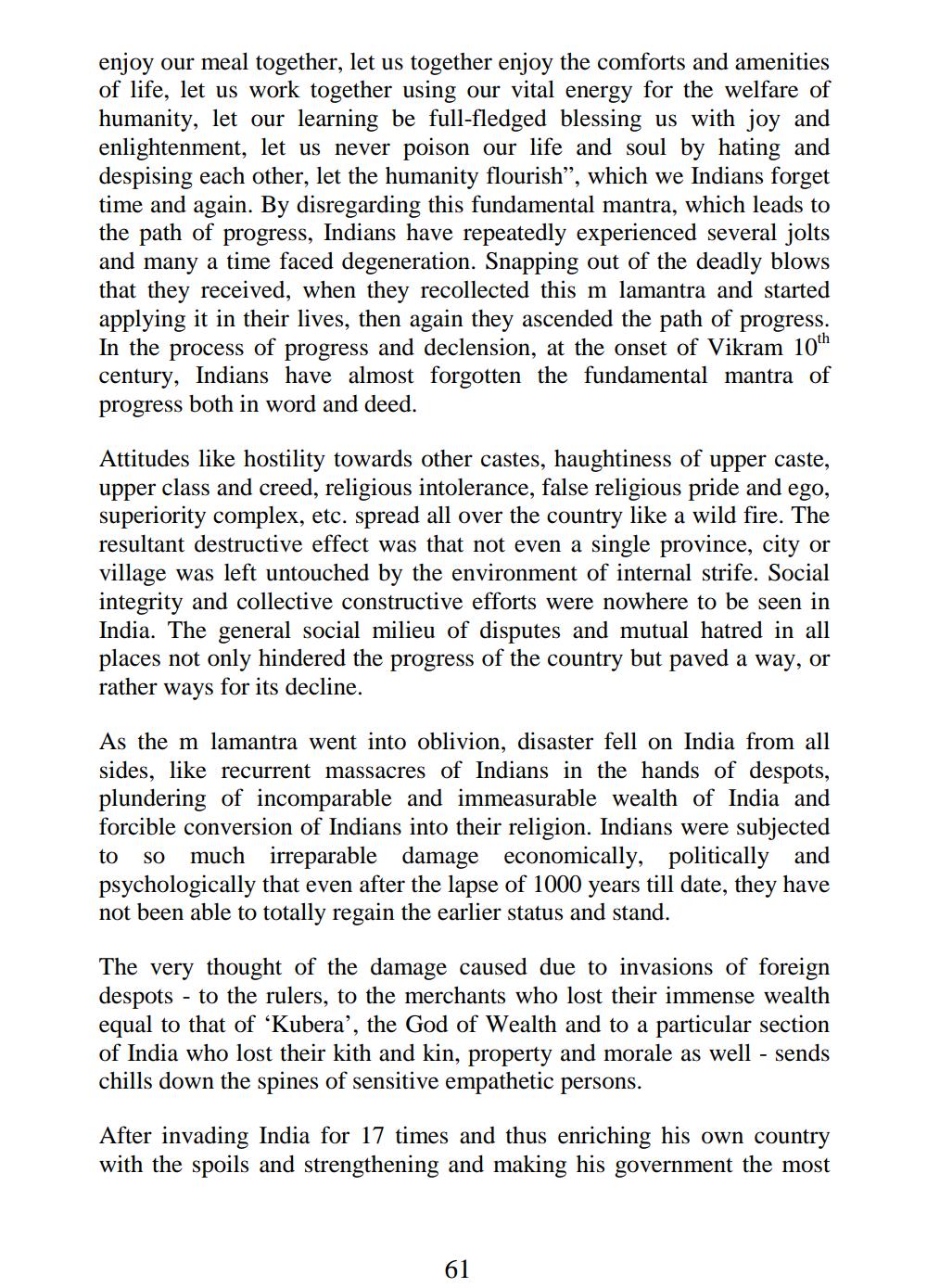________________
enjoy our meal together, let us together enjoy the comforts and amenities of life, let us work together using our vital energy for the welfare of humanity, let our learning be full-fledged blessing us with joy and enlightenment, let us never poison our life and soul by hating and despising each other, let the humanity flourish”, which we Indians forget time and again. By disregarding this fundamental mantra, which leads to the path of progress, Indians have repeatedly experienced several jolts and many a time faced degeneration. Snapping out of the deadly blows that they received, when they recollected this m lamantra and started applying it in their lives, then again they ascended the path of progress. In the process of progress and declension, at the onset of Vikram 10" century, Indians have almost forgotten the fundamental mantra of progress both in word and deed.
Attitudes like hostility towards other castes, haughtiness of upper caste, upper class and creed, religious intolerance, false religious pride and ego, superiority complex, etc. spread all over the country like a wild fire. The resultant destructive effect was that not even a single province, city or village was left untouched by the environment of internal strife. Social integrity and collective constructive efforts were nowhere to be seen in India. The general social milieu of disputes and mutual hatred in all places not only hindered the progress of the country but paved a way, or rather ways for its decline.
As the m lamantra went into oblivion, disaster fell on India from all sides, like recurrent massacres of Indians in the hands of despots, plundering of incomparable and immeasurable wealth of India and forcible conversion of Indians into their religion. Indians were subjected to so much irreparable damage economically, politically and psychologically that even after the lapse of 1000 years till date, they have not been able to totally regain the earlier status and stand.
The very thought of the damage caused due to invasions of foreign despots - to the rulers, to the merchants who lost their immense wealth equal to that of ‘Kubera', the God of Wealth and to a particular section of India who lost their kith and kin, property and morale as well - sends chills down the spines of sensitive empathetic persons.
After invading India for 17 times and thus enriching his own country with the spoils and strengthening and making his government the most
61




